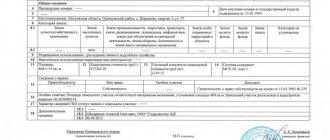Ownership rights are protected by law. It is the constitutional right of every citizen to own real estate, land, etc. However, our legislation provides for some exceptions when the owner may lose his property.
In this article we will look at what violations the owner can lose his land plot for as of 2021.
On what basis does the state seize land?
In addition to scheduled and unscheduled inspections, on the basis of No. 234-FZ dated July 2, 2014, within the framework of land control, a form for detecting and recording an offense has been created - an administrative inspection of land relations objects. Unlike scheduled and unscheduled inspections, administrative inspections do not require compliance with a special appointment procedure. As stated in the law, an administrative survey is carried out as part of systematic monitoring of compliance with the requirements of the legislation of the Russian Federation.
In other words, the inspector has the right to begin an administrative inspection of your land plot at any time, and the frequency of such inspections is not limited.
At the same time, the administrative inspection should not interfere with the economic activities of the owner. When studying the condition of a land plot, aerospace photography, the results of soil, agrochemical, phytosanitary, environmental and toxicological examinations and other methods are used.
If violations of land legislation are identified as a result of an administrative survey, the results of such a survey are documented in an act. Identification of offenses is the basis for ordering a full-fledged unscheduled inspection against the owner with possible subsequent confiscation of the land plot.
Confiscation
Confiscation is carried out only on the basis of a court verdict that has entered into force against the owner of the land property. The procedure for confiscating property confiscated by the court is determined by Article 243 of the Civil Code of the Russian Federation and Article 50 of the Land Code of the Russian Federation.
If a citizen commits a crime, confiscation is applied as a sanction for the unlawful act. In this case, only the property that is in the direct possession of the citizen accused of a crime is subject to confiscation.
The land plot seized in this way is subsequently sold at public auction. At the same time, the former owner is not entitled to any compensation in return for the confiscated land property.
The following types of land plots are not subject to confiscation:
- Plots on which residential buildings or outbuildings are located that are not subject to confiscation;
- Land objects on which subsidiary or agricultural activities are carried out.
Reasons for an unscheduled inspection of a land plot by an inspector
During the administrative survey, the inspector may discover land violations such as:
- use of a land plot not for its intended purpose in accordance with its category of land and type of permitted use;
- non-use of agricultural land, the turnover of which is regulated by No. 101-FZ dated July 24, 2002, for its intended purpose within one year from the moment ownership rights arise;
- non-use of a land plot intended for housing or other construction, gardening, vegetable gardening, for the specified rental purposes.
Confiscation of unclaimed plots
In some cases, a land plot is considered unclaimed.
This happens if:
- local authorities do not have any information about the owner of the property;
- the former owner of the plot died, and his successors, for certain reasons, did not enter into inheritance rights (for example, there are no heirs, they refused to accept the inheritance, or they were found unworthy).
Attention! Plots registered in accordance with Federal Law No. 122-FZ “On state registration of rights to real estate and transactions with it” dated July 21, 1997 cannot be considered unclaimed.
When an unclaimed land object is withdrawn, compensation is not paid.
The procedure for the withdrawal of this category of land is as follows:
- Local governments form lists of owners of unclaimed plots of land;
- The compiled lists are posted in the media and on the official website of the administration;
- After the expiration of a month, local authorities apply to the court to recognize the lands as unclaimed.
In this case, the deadlines established by law must be observed.
Here is how the Supreme Arbitration Court of the Russian Federation speaks about this in its Resolution No. 11 dated March 24, 2005 “On some issues related to the application of land legislation”: “If a claim for the redemption of a land plot is brought before the expiration of one year from the date the owner receives the land area of the notification about the decision to seize, or later than two years from the moment it was sent to the owner, the claim of the specified authorities is not subject to satisfaction.”
What is the fine for misuse of land?
Clause 2 of Art. No. 7 of the Land Code of the Russian Federation stipulates that lands must be used in accordance with the intended purpose and zoning of the territories established for them. For example, if the owner of a land plot builds a residential building without changing the permitted use for individual housing construction, then he will have an administrative offense in accordance with paragraph 1 of Article 8.8 of the Code of Administrative Offenses of the Russian Federation.
Use of a land plot for purposes other than its intended purpose shall entail the imposition of an administrative fine. For legal entities, the fine is 1.5-2% of the cadastral value of the entire land plot, but not less than 100 thousand rubles. For individuals in the amount of 0.5-1% of the cadastral value of the plot.
Requisition
Seizure in the form of forced requisition of property for compensation is used by executive authorities in cases of emergency circumstances, such as:
- man-made disasters;
- natural disasters;
- carrying out military operations at the location of the owner’s property.
In case of requisition of a plot, the authorities are obliged to compensate the owner for the cost of the property and losses incurred as a result of the seizure. According to Article 51 of the Land Code of the Russian Federation, the owner of a land plot, if it is impossible to return it, is compensated for the market value of the requisitioned object.
The cost is calculated in accordance with the federal law on assessed value.
Requisition of land is, as a rule, temporary in nature, as a result of which, after eliminating the reasons for the seizure, the plot can be returned to its owner with payment of compensation for losses incurred by him.
If it is impossible to transfer the seized plot to its owner, the state pays compensation in the amount of the market value of the property (Article 66 of the Land Code of the Russian Federation).
Watch the video. How can a land plot be taken away and how to prevent this:
Reasons for seizure of agricultural land
According to Article No. 6 of the Land Code of the Russian Federation “Forcible withdrawal and termination of rights to land plots from agricultural lands,” two grounds are provided for the withdrawal of agricultural lands.
Deterioration of useful properties of land
A plot of agricultural land can be forcibly seized from its owner in court if the land plot is used in violation of the requirements for the rational use of land, resulting in a significant decrease in fertility or a significant deterioration of the environmental situation. The criteria for a significant decrease in fertility are established by Decree of the Government of the Russian Federation No. 612 of July 22, 2011, and the criteria for a significant deterioration of the environmental situation are established by Decree of the Government of the Russian Federation No. 736 of July 19, 2012.
A significant decrease in the fertility of agricultural land is a change in the numerical values of at least 3 of the following criteria:
- a decrease in the content of organic matter in the arable horizon by 15 percent or more;
- reducing acidity in acidic soils by 10 percent or more;
- increasing alkalinity in alkaline soils by 10 percent or more;
- reduction in available phosphorus (mg/kg soil) by 25 percent or more;
- reduction in exchangeable potassium content (mg/kg soil) by 25 percent or more.
The criteria for significant deterioration of the environmental situation as a result of the use of agricultural land in violation of the requirements for rational use of land are:
- soil contamination with chemicals, in which the total content of pollutants in the soil, the concentration of which exceeds the maximum permissible concentration standards established for chemicals, is equal to or exceeds 30;
- placement of production and consumption waste of hazard classes 1-4 within a land plot on a total area of 0.5 hectares and above.
The land plot has not been used for more than 3 years
A land plot from agricultural lands can be forcibly seized from its owner in court if, for three or more consecutive years from the date the owner acquired the right of ownership of the land plot, it is not used for agricultural production or other related activities. agricultural production and activities. The 3-year period does not include the period during which the land plot could not be used for its intended purpose due to natural disasters or other circumstances precluding such use, as well as the period for development of the land plot. The period for land development cannot be more than two years.
Signs of non-use of land plots, taking into account the specifics of agricultural production or other activities related to agricultural production, are established in Decree of the Government of the Russian Federation No. 369 of April 23, 2012.
Is it possible to seize a land plot from the owner if the plot intended for housing construction or agricultural production is not used for its intended purpose? If yes, what is the procedure for withdrawal? Are there any other sanctions for non-use of these categories of land for their intended purpose? The Novorossiysk Department of Land Supervision draws the attention of land users to this sanction for misuse or non-use of the land plot by the owner to prevent the above-mentioned offenses. In accordance with Art. 284 of the Civil Code of the Russian Federation (hereinafter referred to as the Code), a land plot can be seized from the owner in cases where the plot is intended for agricultural production or housing or other construction and is not used for the corresponding purpose for three years, unless a longer period is established by law. This period does not include the time required to develop the site, as well as the time during which the site could not be used for its intended purpose due to natural disasters or other circumstances precluding such use.
Clause 5 of Art. 85 of the Land Code of the Russian Federation establishes that land plots within residential zones are intended for development with residential buildings, as well as cultural, social and other facilities. Residential zones can be intended for individual residential development, low-rise mixed residential development, mid-rise mixed residential development and multi-storey residential development, as well as other types of development in accordance with urban planning regulations.
According to paragraph 3 of Art. 6 of the Federal Law of July 24, 2002 N 101-FZ “On the turnover of agricultural land”, a land plot from agricultural land can be forcibly seized from its owner by judicial procedure in case of improper use or non-use in accordance with its intended purpose for three years. Cases of improper use of agricultural land are determined in accordance with the Land Code of the Russian Federation.
An application for the forced withdrawal from the owner of a land plot from agricultural land in the event of its improper use or non-use in accordance with its intended purpose for three years is sent to the court by a state authority of a constituent entity of the Russian Federation or, in cases established by the law of a constituent entity of the Russian Federation, by a local government body .
Based on Art. 286 of the Code is a body of state power or local self-government authorized to make decisions on the seizure of land plots on the grounds provided for in Art. Art. 284 and 285 of the Code, as well as the procedure for mandatory advance warning of land owners about violations, are determined by land legislation.
If the owner of a land plot notifies in writing the body that made the decision to seize the land plot of his consent to comply with this decision, the plot is subject to sale at public auction. If the owner of a land plot does not agree with the decision to confiscate the plot from him, the body that made the decision to confiscate the plot may submit a demand for the sale of the plot to the court.
Decree of the Government of the Russian Federation dated November 15, 2006 N 689 approved the Regulations on state land control, according to clause 1 of which the task of state land control is to ensure compliance by organizations, regardless of their organizational and legal forms and forms of ownership, by their managers, officials, as well as citizens land legislation, requirements for the protection and use of land.
In paragraphs “c” clause 3 of the Regulations stipulates that the Federal Real Estate Cadastre Agency and its territorial bodies exercise state land control over compliance with the requirements of land legislation on the use of lands for their intended purpose and the fulfillment of obligations to bring lands into a state suitable for use for their intended purpose .
In accordance with Art. 8.8 of the Code of the Russian Federation on Administrative Offences, use of land not for its intended purpose, failure to use a land plot intended for agricultural production or housing or other construction for specified purposes within the period established by federal law, as well as failure to comply with established requirements and mandatory measures to improve land and protection of soils from wind and water erosion and the prevention of other processes that worsen the quality of land, entails the imposition of an administrative fine on citizens in the amount of five to ten times the minimum wage; for officials - from ten to twenty minimum wages; for legal entities - from one hundred to two hundred minimum wages.
Simultaneously with the imposition of a fine, officials of state land control bodies issue an order to eliminate the violation of land legislation, setting a deadline for the execution of the order (clause “c” of clause 9 of the Regulations).
If the offense is not eliminated within the prescribed period, a protocol on administrative violation under Part 1 of Art. 19.5 of the Code of Administrative Offenses of the Russian Federation (failure to comply within the prescribed period with a legal order of an official exercising state control to eliminate violations of the law) and as part of an administrative case is sent for consideration to a court (magistrate court). At the same time, materials on the termination of the right to a land plot are sent by an official of the state land control body to the executive body of state power or local government to make an appropriate decision (clauses “c”, “d” of paragraph 10 of the Regulations).
Reasons for seizure of land for construction
- Based on Article 284 of the Civil Code of the Russian Federation, failure to use a land plot for construction within 3 years gives the lessor the right to demand termination of the lease agreement.
- In addition, a land plot can be seized from the owner in cases where the plot is intended for construction and is not used for the corresponding purpose for three years, unless a longer period is established by law. This fact can be easily established by looking at satellite images of the area, or you can discover this fact when visiting the area.
Failure to use a land plot for construction purposes within the time limits established by law not only entails administrative liability under Article 8.8 of the Code of Administrative Offenses of the Russian Federation, but also entails serious risks of loss of the right to a land plot.
Going to court
Violation of the seizure procedure occurs quite often, and therefore the courts refuse to satisfy the demands of government bodies.
The most common violations include:
- violation of the procedure for making the relevant decision;
- violation of the procedure for notifying land owners;
- violations of the assessment procedure.
Such actions on the part of government agencies are a good help for owners who need to gain time and prevent the property from being seized.
If violations of the seizure procedure are revealed during the trial, the owner has the right to:
- restore your rights to the land plot;
- count on the cancellation of the decision of the government body;
- demand compensation for losses incurred.
ATTENTION! Look at the completed sample of an administrative claim declaring illegal the decision of a local government body to seize a land plot:
Attention! Our qualified lawyers will assist you free of charge and around the clock on any issues. Find out more here.
How does the seizure of land for municipal needs occur?
- According to Article 54 of the Land Code of the Russian Federation and subparagraph 1 of paragraph 2 of Article 45 of the Land Code of the Russian Federation, the seizure of a land plot in connection with its improper use is carried out after the entry into force of the decision on administrative punishment in the form of an administrative fine imposed for the offense and provided that the violation has not been eliminated .
- Simultaneously with the imposition of an administrative penalty, the federal executive body exercising state land supervision issues an order to eliminate the committed land offense, containing a period during which the land offense must be eliminated, to the person guilty of violating land legislation.
- If the owner of the land plot has not eliminated the violation within the prescribed period, the executive body sends copies of the materials of state land supervision to the authorized government body of the subject of the federation or local government body, which sends an application to the court for the seizure of the land plot.
Withdrawal for state and municipal needs
A similar basis arises in cases where a land plot is required by federal or municipal authorities for one reason or another. At the same time, the law allows the seizure of the necessary object in an expedited manner, without the initiator going to court.
The corresponding decision is presented to the owner in writing no later than twelve months preceding the seizure procedure.
In this case, the transfer of the site to state or municipal bodies is carried out on a reimbursable basis. In this case, the land owner is offered compensation in the amount of the market value of the property. In addition, the land owner has the right to demand compensation for lost commercial profits.
The final amount of compensation is determined by the court based on the following expenses: the market and appraised value of the object, the amount of losses that the owner will suffer in the event of seizure, as well as the amount of lost profits.
How can a land plot under construction be seized?
In accordance with No. 171-FZ dated June 23, 2014, for owners of unfinished construction projects, there are risks of losing ownership of these objects.
If the construction of a real estate property on a leased plot is not completed before the expiration of the lease term, then the owner of the unfinished construction facility has the right to purchase the plot for rent for a new term, but not more than 3 years, without bidding. However, this right can be exercised only if, within 6 months from the date of expiration of the lease agreement, the authorized body does not file a claim with the court to seize the unfinished construction project. The requirement cannot be satisfied only if the violation of the construction deadline is associated with the actions (inaction) of government bodies (local government) or persons operating utility networks.
In other cases, the court may decide to sell the unfinished construction project at public auction. The initial sale price of an unfinished construction project is determined based on an assessment of its market value.
The proceeds from the sale of the unfinished property are paid to the former owner of the property minus the costs of preparing and holding public auctions.
Corruption of the earth
Violation of sanitary standards during the construction of bathhouses and street toilets, dumping of waste on site, unauthorized excavation of pits, etc.
- all this will be considered damage to the top fertile layer of the earth. For these actions, in accordance with Article 8.6 of the Code of Administrative Offenses, citizens are subject to a fine of 3,000 to 5,000 rubles. In addition, an order will be issued to eliminate violations and reclaim the land. For ignoring it, according to Article 8.7 of the Code of Administrative Offenses, a citizen faces a fine of 20,000 to 50,000 rubles.
As you can see, there are many restrictions that any land owner must comply with if he does not want problems with the law.
What do you think, which of these restrictions are really necessary and which are useless?
Which ones would you personally remove and which ones would you add? Please share your opinion in the comments. If you liked the article, please share it on social networks. Unlock access to the private part of Clerk with a Premium subscription. Get hundreds of webinars and online courses, unlimited consultations and other proprietary content for accountants.
Hurry up to subscribe with a 20% discount until October 15, 2021. Read more about “Premium” here.
On a note
Citizens and legal entities are responsible for the maintenance of only the plots they own. If you have been unfairly accused, go to court and rely on federal law.
Pay attention to the concepts used by the inspection body. There should be no confusion between the definitions of “home” and “adjacent” territory. These are different concepts with different legal status.
If the boundaries of the land plot adjacent to the apartment building are not established, the plot itself is not specified, there is no plan diagram and there is no contrary evidence in the case, insist that you are right - you are not obliged to maintain such a territory.








